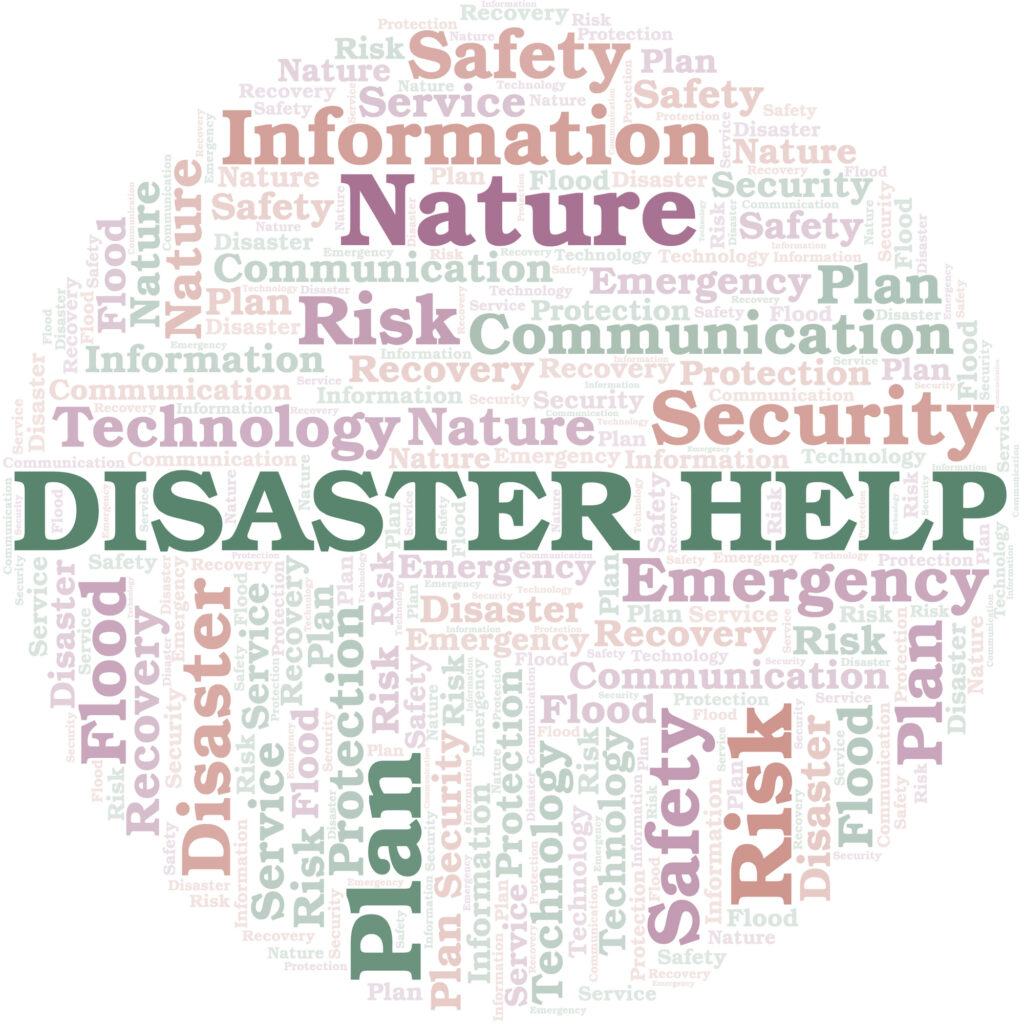 Between January 7, 2024, and November 7, 2024, there were 127 federally-declared disasters. It seems that the number of these disasters has been growing over the years. If your business is damaged or destroyed in a disaster, the government may be able to help, but do you know what to do to secure this assistance? When you’ve been hit, there’s so much confusion, loss, and desperation. It’s a good idea to know in advance what you’ll need to do if you should experience a disaster in the future. Here is some information that can help you understand what’s involved and what you can do now to have necessary information at your fingertips.
Between January 7, 2024, and November 7, 2024, there were 127 federally-declared disasters. It seems that the number of these disasters has been growing over the years. If your business is damaged or destroyed in a disaster, the government may be able to help, but do you know what to do to secure this assistance? When you’ve been hit, there’s so much confusion, loss, and desperation. It’s a good idea to know in advance what you’ll need to do if you should experience a disaster in the future. Here is some information that can help you understand what’s involved and what you can do now to have necessary information at your fingertips.
Find a Disaster Recovery Center (DRC)
Your DRC will offer advice about community, state, and federal agencies can provide information and direct you to finding financial assistance. This may be government programs or voluntary agencies providing help.
To find a DRC near you, go to FEMA’s DRC Locator. Alternatively, you can text “DRC” and your zip code to 43362.
Register with FEMA
You need to get into the system so you can move ahead with obtaining assistance. The Federal Emergency Management Agency—FEMA—will provide a registration number, which is required for SBA loans (see below). There are several ways to register a small business:
- Call the FEMA helpline at 800-621-3362.
- Create a mobile account. Download the FEMA app.
- Go to disasterasistance.gov.
You’ll initially receive a 4-digit PIN via email from FEMA; this is temporary. Then information must be provided to FEMA to get your registration number, including:
- A current phone number
- Address at the time of the disaster and current address (if different)
- A list of damages or losses
- Insurance policy number and name of the company or agent
Once the application is completed, you’ll receive a 9-digit number from FEMA.
Suggestions: Add the FEMA helpline number to your contact list and the FEMA app to your smartphone. Take a photo of the first page of your insurance policy; it contains the policy number, name of the insurer and, if applicable, the agent, and other information.
Understand what financial assistance may be available
FEMA does not make loans, but works with the SBA, which may be a source of financing in case of a disaster.
- Business physical disaster loans. These are low-interest loans to small businesses through the SBA up to $2 million if losses are not fully covered by insurance. There are no application fees. The proceeds can be used to repair or replace physical assets (e.g., real property, machinery, equipment, fixtures, inventory, leasehold improvements). Proceeds can’t be used to upgrade or expand a business, except as required by building codes.
- Economic injury disaster loans (EIDLs). These are also long-term (up to 30 years) low-interest loans (not more than 4%) to small businesses through the SBA up to $2 million for businesses that experience an economic injury: (1) a business is directly impacted by a disasters, (2) it cannot cover expenses due to the disaster, or (3) it is physically located in a declared disaster area. The proceeds are for working capital and normal business expenses (e.g., the continuation of health care benefits, rent, utilities, and fixed debt payments). The proceeds can’t be used to expand facilities, buy fixed assets, repair physical damages, refinance debt, pay out dividends or bonuses, or pay back loans to business owners. Note: Once the application is completed, the SBA sends an inspector to estimate the cost of damage.
Suggestion: Put the SBA Disaster Assistance Customer Service Center number in your contact list: 800-659-2955.
Know what documentation is needed
Be sure you can easily obtain the following information required for an SBA loan:
- Contact information for all applicants
- Social Security numbers for all applicants
- FEMA registration number
- Deed or lease information
- Insurance information
- Financial information (e.g., tax returns, a brief history of the business, and personal and business financial statements)
- Employer Identification Number (EIN)
Suggestion: Have all of this information accessible from the cloud.
Final thought
“No matter how bleak or menacing a situation may appear, it does not entirely own us. It can’t take away our freedom to respond, our power to take action.”
― Ryder Carroll, creator of the Bullet Journal (BuJo)
Maybe you’ll never experience a disaster, but don’t plan on such luck; plan for the “just in case.”


